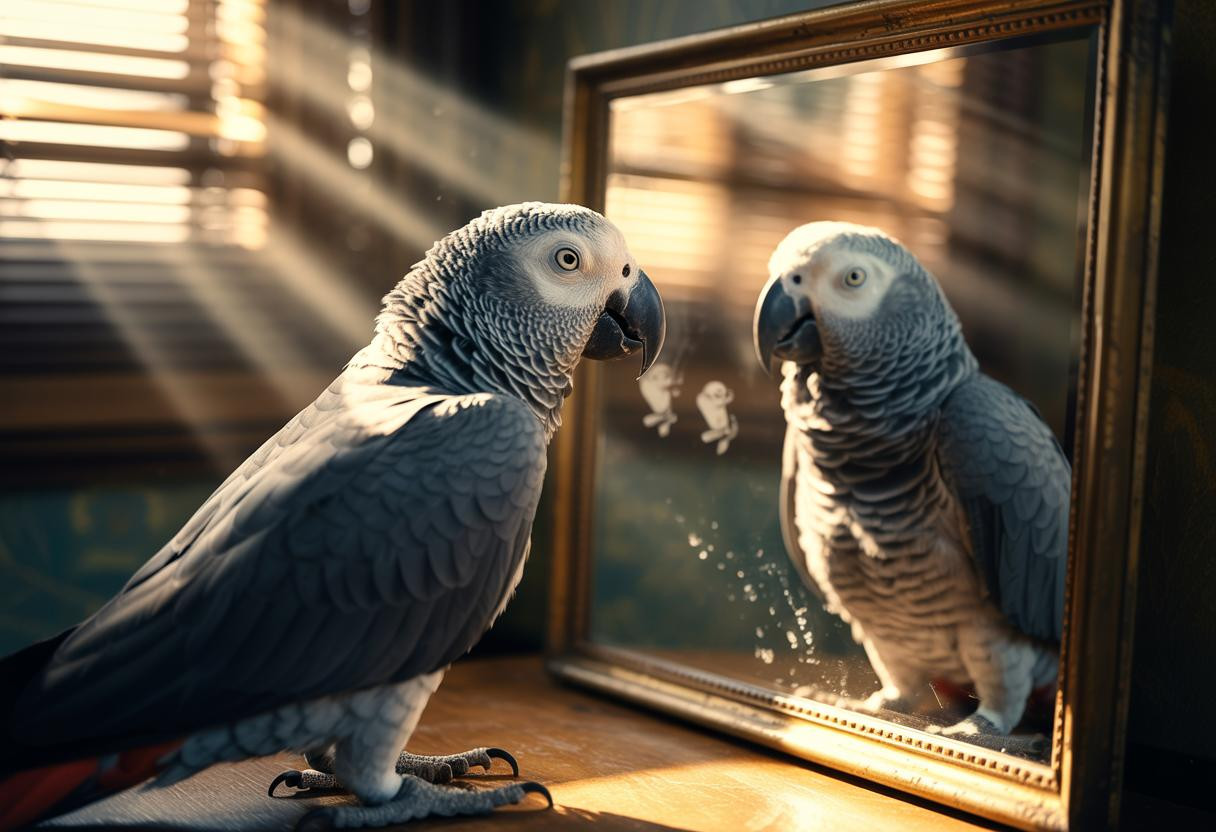I still remember the moment perfectly. I was enjoying my morning coffee when Kiwi, my African Grey parrot, suddenly spoke in a voice I’d never heard before. The gentle, elderly voice said, “Don’t forget the sugar, dear.” I froze. Living alone for years, I had no idea where Kiwi could have heard this mysterious voice – it wasn’t mine, nor any visitor’s I could recall.
The science behind parrots’ extraordinary mimicry abilities
Parrots possess remarkable vocal learning capabilities that few animals share. “Unlike most creatures, parrots have specialized brain structures that allow them to process and reproduce complex sounds with astonishing accuracy,” explains Dr. Maya Ramirez, avian cognition researcher at Cornell University.
These intelligent birds can store sounds in their memory for years before reproducing them. This explains why some parrot owners report their birds mimicking voices from previous homes or environments they’ve long left behind.
Hidden sources of mysterious voices
After my experience with Kiwi, I investigated possible explanations for this phenomenon:
- Television or radio programs playing while you’re away
- Neighbors’ voices carrying through walls or windows
- Previous owners or environments from the bird’s past
- Online videos or calls heard through speakers
“Parrots are like audio sponges that absorb and replay sounds from their environment,” says veterinary behaviorist Dr. James Connor. “They’re particularly attracted to sounds with emotional significance or repetitive patterns.”
When your parrot becomes a time capsule
Lisa Martinez from Seattle shared a similar experience: “My cockatoo started mimicking my grandfather’s distinctive laugh three years after he passed away. It was like hearing a vocal ghost – both unsettling and comforting.”
These experiences mirror how modern technology can unexpectedly capture and transmit sounds. Just as smart toys might transmit signals to unknown devices, parrots transmit voices across time.
The emotional impact of unexpected mimicry
Hearing an unknown voice from your parrot can trigger various reactions:
- Startled confusion and curiosity
- Eerie discomfort or supernatural interpretations
- Profound connection to unseen parts of your bird’s history
For me, Kiwi’s mysterious voice became a reminder of her life before me – a past I’ll never fully know, like pages from a biography I cannot read.
How to encourage or redirect your parrot’s vocalizations
If you’re fascinated by your parrot’s mimicry, consider creating a vocal enrichment program. Daily conversation and consistent phrases can help develop their repertoire, similar to how consistent natural routines benefit other aspects of health.
Technology can enhance this learning process. Just as technological improvements boost device performance, specialized apps can help train and record your parrot’s progress.
The deeper meaning behind parrot mimicry
Beyond mere copying, parrots use vocalization for social bonding. When they mimic you or other meaningful sounds, they’re often attempting to connect.
If you’re intrigued by this phenomenon, you’re not alone. Many owners have documented their experiences with parrots imitating unfamiliar voices, creating a fascinating collection of unexplained mimicry stories.
Is your parrot trying to tell you something?
Have you experienced your parrot speaking in an unfamiliar voice? Rather than dismissing it as random mimicry, consider it a glimpse into your bird’s complex perception of their world – a world where sounds carry meaning beyond our understanding, and where your feathered companion processes information in ways we’re only beginning to comprehend.
